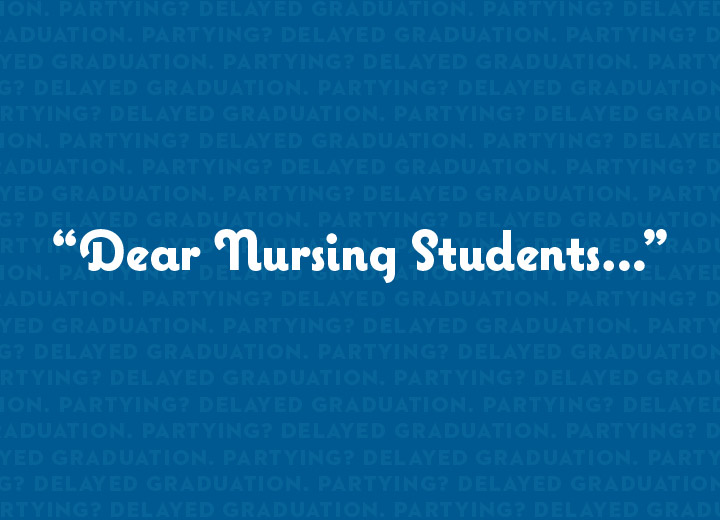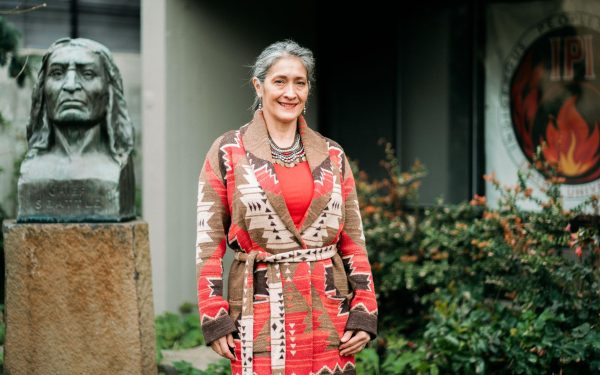Should Nursing Students Be Held to a Higher Standard During COVID-19?
Nursing students received an unexpected email Nov. 13, the Friday before a busy finals week. The message was sent by Danuta Wonjar, Associate Dean for Academic Affairs at Seattle University, who stated that if nursing students continue to disregard social distancing protocols, they will risk a delayed graduation date. Although the email was abrupt, both faculty and students agree that the message was a necessary wake up call.
Over the past few weeks, nursing students have been struggling to balance clinical hours, studying for finals and taking on the challenges of being rising health care providers during a pandemic. Madeline Chheng, the Cohort Vice President for the College of Nursing at Seattle U and a third-year nursing student, thought the email was poorly timed.
“I was a little shocked,” Chheng said. “While I don’t condone partying during this time especially, I think that during a stressful time with finals coming up, this type of thing should have been addressed either early on in the quarter, or over break, to set the expectation going back to school in the winter.”
According to Chheng, students had informed professors of partying within the nursing community, which prompted a response from faculty. Peyton Eastman, a second-year nursing student at Seattle U, described her initial reaction to the email.
“I felt that the email was vague, and I was confused about who was being targeted,” Eastman said.
The threat of a delayed graduation is probable, as partying could cost nursing students their clinical hours and therefore delay their graduation. Kristen Swanson, Dean of the College of Nursing, commented on the possibility of delaying students’ graduation if they attend any parties.
“Nursing students have requirements to get in clinical hours.” Swanson said. “If they have to stay away from the clinical space, they can’t complete the course objectives. If you can’t complete the course objectives, you have to wait to retake the course, and you could end up with a delayed graduation.”
Despite the stressful situation, nursing students acknowledged that they are rightfully held to higher standards during the pandemic. With clinical hours being a major requirement, they are putting a larger and more vulnerable group of people at risk of exposure if they act irresponsibly.
“If our students are being placed in health care facilities to take care of people who are sick and vulnerable, we do not want to be a vector for infection—we want to be a vector for compassion and confident care,” Swanson said.
Chheng added that this pressure is difficult to manage, but necessary. She also added that nursing students need to follow COVID-19 precautions strictly in their day-to-day activities.
“I think morally and ethically, we should be held to higher standards,” Chheng said. “Maybe not so much that we’re being threatened by the faculty, but I think every person that’s going into a healthcare field should be taking this moment in history seriously and implementing it in their lifestyles, because it’s something that we shouldn’t be doing, but people are doing anyway.”
While nursing students face more responsibility than the average student, Swanson added that attending parties is not unique to the College of Nursing.
“Their tendency to want to congregate is no different than any other human being’s wish to congregate. The obligation to act wisely is deeper if you are a health care giver,” Swanson added.
Chheng is currently completing clinical hours at the UW Medical Hospital Northwest, and has had a positive experience thus far. Swanson commented on the overall student experience while completing their clinicals this quarter.
“As a whole, our students have done an amazing job,” Swanson said. “Some have been exposed as a consequence of their actions in the community, but I do not believe there has been one case of a student becoming positive from their clinical, and that speaks to what should happen when you cross the threshold of a healthcare facility.”
Hospitals have proven to be a safe space for Seattle U students, and it is their responsibility to guard these facilities. The email serves as a reminder that, for nursing students and beyond, actions affect the community—especially during a pandemic.










